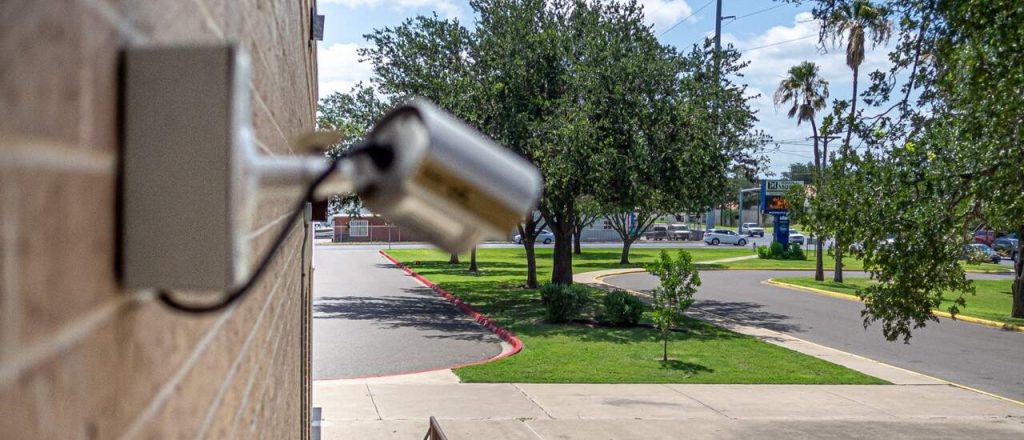The Value of Technology Assessments
Are you aware of the value of technology assessments?
Numerous risks lurk at your door. And failing to be ready can result in serious consequences impacting systems and more importantly, people.
Read on to learn about the value of technology assessments—which applies to education, law enforcement, government and many other entities.
Jump to Section:
- Why You Need a Technology Assessment
- Types of Technology Assessments
- Benefits of Assessments
- What to Look for in a Consultant
- Key Takeaways
Why You Need a Technology Assessment
Have you ever considered a technology assessment? If you haven’t, you risk falling behind the rapid pace of technology demands.
What are technology assessments? Technology assessments are a systematic evaluation of the effects, impacts and implications of a new or existing technology.
Methodology of a Technology Assessment
There are five basic steps of performing a technology assessment:
-
-
- 1. Define goals
- 2. Interview stakeholders
- 3. Establish current conditions and limitations
- 4. Compile findings and recommendations
- 5. Create a comprehensive report
-
Types of Technology Assessments
Technology assessments are broadly categorized into three main types:
-
-
- Electronic Safety & Security Assessments
- Network Infrastructure Assessments
- Technology Impact Analysis Assessments
-
Video surveillance systems, such as the one pictured above at Morris Middle School, are just one of many components within a security and network infrastructure.
There are many electronic safety and security systems that these assessments evaluate. Network infrastructure is another key component to assess. Listed below is a brief overview of the safety, security and network infrastructure items that need to be assessed:
-
-
- Video Surveillance System (VSS)
- Access Control System (ACS)
- Intrusion/Intruder Detection System (IDS)
- Distribution and equipment rooms and spaces
- Cable plant type and specifications
- Network architecture
-
The ICT system design for the Hidalgo County Courthouse included copper and fiber backbone cabling systems, horizontal cabling systems, j-hooks and cable tray routing, network racks, and coordination with communication service provider.
Technology Impact Analysis. Assessments also help you implement best practices like business continuity and disaster recovery. They provide recommended measures that allow key functions to continue during and after an unexpected event. System resiliency and preventative measures are vital to have in place. Performing policy and process reviews will help you overcome challenges if (and when) your technology is compromised.
Benefits of Assessments
-
-
- Provides an important snapshot of your existing technology
- Identifies strengths and deficiencies in the current environment
- Provides a 5-year plan
- Provides documentation for funding pursuits (now or in the future)
- Creates a report card for the technology being assessed
-
Technology assessments are a game changer because they help you see the status of systems now and what they could be.
You may not even be aware of existing problems. Perhaps deficiencies lie elsewhere. Assessments help you diagnose, document and plan out all these factors appropriately for the future.
Stakeholder Benefits
When a variety of stakeholders are involved, many benefits are brought to the table.
Technology experts: speak “IT” and help bring in-depth knowledge needed to create a robust technology road map, and policy and procedures review.
Superintendents: provide supporting documentation for budgeting and funding, as well as metrics for the 5-year plan. They enable the process to move along smoothly.
Law enforcement: measure the integrity of the electronic security system in part or as whole solution. This can help identify improvements with the digital evidence stored in the video management system’s recorders.
Board Members: provide transparency reports on the state of technology, performance reports on the technology systems, and supporting documentation for budgeting, funding and planning.
What to Look for in a Consultant
Below are important things to look for when choosing a technology assessment consultant:
-
-
- Technology neutral. Look for a consultant that is not tied to any specific technology or vendor, ensuring that their recommendations are based solely on what’s best for your organization’s needs. This prevents conflicts of interest and ensures you get the most objective guidance.
- Unbiased process evaluation. They should be able to objectively provide data to evaluate your existing systems, identify inefficiencies or bottlenecks in your workflows, and recommend improvements without favoring specific technologies or vendors. This ensures that their recommendations are based solely on what’s best for your needs, rather than personal preferences or affiliations.
- IT background and leadership experience. Consultants with a technical IT background can offer more critical thinking insights and deeper working knowledge. A consultant also needs to possess leadership skills. Consultants that have both these skills can better help various stakeholders understand the unique challenges, as the consultant must provide strategic guidance and ensure that technology aligns with your overall business goals.
- Technology certifications. Certifications including Certified Government Chief Information Officer (CGCIO), Registered Communications Distribution Designer (RCDD) and Certified Cisco Network Administrator (CCNA) demonstrate a consultant’s expertise in specific technologies or methodologies, ensuring that they have the knowledge and skills to provide accurate and valuable recommendations. Consultants who stay current with technology trends by attending conferences, symposiums, and manufacturer provided sessions are able to ensure the assessment reflects best practices and subject matter experience for the client.
-
Key Takeaways
Technology assessments provide a litmus test and actionable plan for your technology systems.
The systematic evaluation of the strengths, deficiencies, impacts and implications of new or existing technology helps produce a five-year plan, and create a report card for the technology being assessed.
Setting you up for success, technology assessments give valuable insights for informed decision-making as well as documentation for budgeting, funding and planning for the future.
Want to future-proof your systems with a technology assessment? Our talented ICT professionals come from an IT background, maintain many certifications and bring years of expertise for your projects.
Let Halff help by contacting ICT Senior Project Manager Rudy Juarez, CGCIO (rJuarez@halff.com) or ICT Senior Project Manager Jason Bartimus, RCDD (jBartimus@halff.com).








